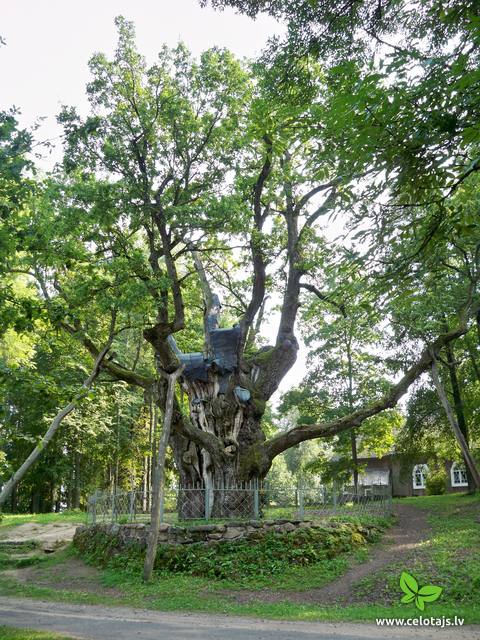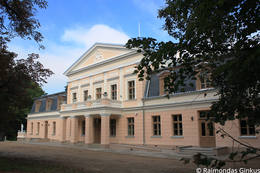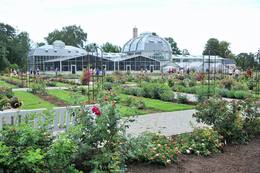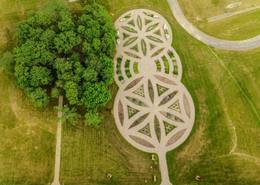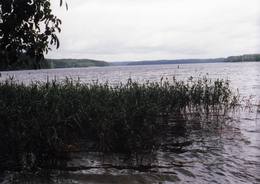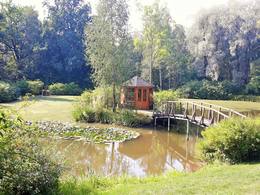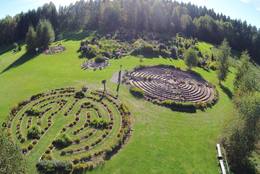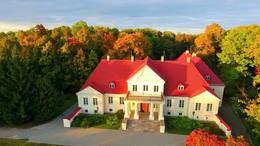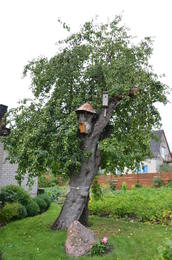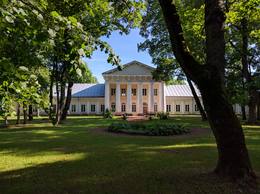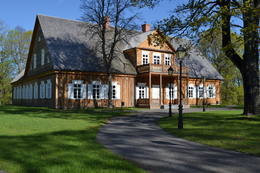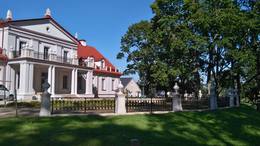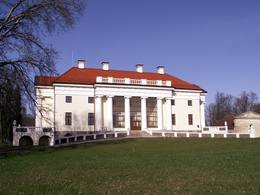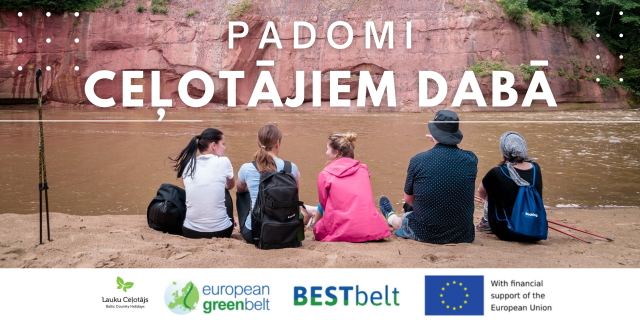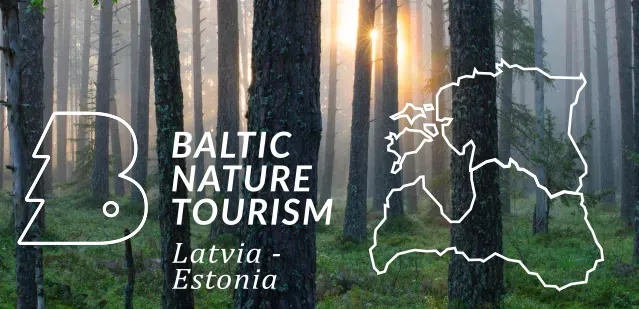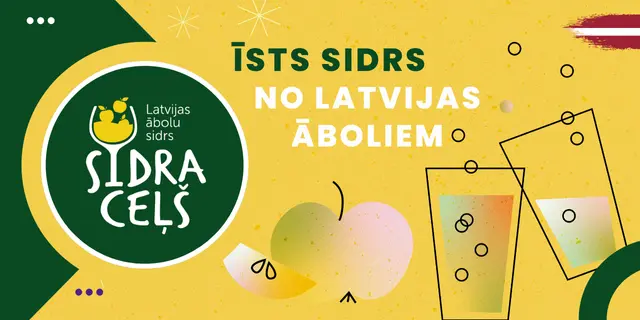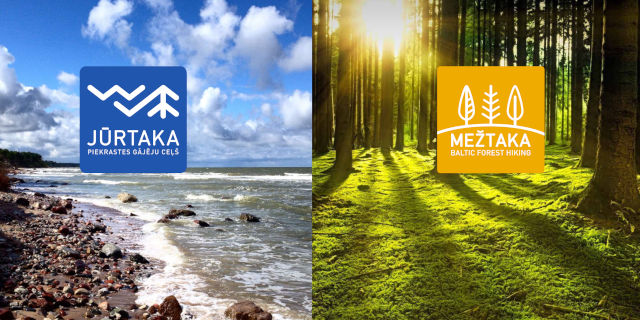Dabas objekti Lietuvā
Ar ko ievērojama daba Lietuvā?
Kuršu kāpa – tuksnešaina zemes strēle starp Baltijas jūru un Kuršu jomu, Žemaitijas pauguraines ainavas, Aukštaitijas ezeru zilo spoguļu labirinti, Dzūkijas priežu sili, Nemunas ielejas loku ainavas un daudzie reģionālie dabas parki, kas veidoti ne tikai dabas aizsardzības, bet arī sabiedrības izglītošanas un atpūtas nolūkos, ir tie dabas vērtumi, kas dabas tūristus piesaista Lietuvā.
Lai uzzinātu vairāk par apmeklējamām teritorijām aicinām izmantot vides vai vietējo gidu pakalpojumus.
Esiet saudzīgi pret dabu ceļojuma laikā - ievērojiet Zaļos padomus!
| Pārskats | Detaļas |
|---|---|
|
Lietuva
Žagares muižas parksŽagares muižas parks – viens no krāšņākajiem un arhitektūras ziņā interesantākajiem parkiem Lietuvā. Muižas parks 1898. – 1900. gadā rekonstruēts un paplašināts pēc ievērojamā dendrologa G.F.Kuphalda projekta. Parkā iestādīti vairāk kā 200 šķirņu stādu. Vairāk kā 100 no tiem aug vēl joprojām. Parkā līdz šim saglabājušies dažādi ceļi, takas, par kurām staigājot var izjust parka varenību un skaistumu. Parkā izveidota dendroloģiska taka, kurā atzīmēta un piedāvāta informācija par 15 retiem kokiem. |
|
|
Lietuva
Vitauta Dižā universitātes Kauņas botāniskais dārzsBotāniskais dārzs dibināts 1923. gadā kā visas Lietuvas botānikas zinātņu centrs. Dārza platība pārsniedz 60 hektārus, publikai pieejamās ekspozīcijas – aptuveni 30 hektāru. |
|
|
Lietuva
Kuršu joma (Kuršių marios) jeb Kuršu līcisNepilnus 100 km garš un līdz 36 km plats saldūdens līcis, kas ziemeļos (starp Klaipēdas ostu un Kopgali) ir savienots ar Baltijas jūru. No Baltijas jūras to atdala iespaidīgā Kuršu kāpu strēle. Kuršu jomā ietek lielākā Lietuvas upe – Nemuna. Kuršu jomas krasti ir g.k. apauguši ar niedrēm, daudzviet purvaini un pat grūti pieejami. Jau kopš seniem laikiem Kuršu joma ir bijusi ļoti nozīmīga vietējo cilvēku ikdienas nodarbes – zivju zvejas vieta. Kuršu joma un tās skaistās ainavas ir daudzviet vērojamas gan no Kuršu kāpu ciemiem, gan arī augstāko kāpu virsotnēm. Kuršu jomu ar prāmi šķērso ikviens, kas no Lietuvas (Krievijas pusē Kuršu strēle ir savienota ar Kaļiņingradas (kādreiz – Sembijas) pussalu) dodas uz Kuršu kāpām. |
|
|
Lietuva
Panemuņu reģionālais parksParka teritorija ietver Lietuvas lielākās upes – Nemunas ielejas daļu starp Seredžius un Geldaudišķis ciemiem ar ļoti ainaviskiem skatiem uz tās krastos esošajiem pilskalniem, viduslaiku pilīm, muižām u.c.
|
|
|
Lietuva
Žemaitijas nacionālais parks1991. gadā dibinātais Žemaitijas Nacionālais parks (Žemaitijos Nacionalinis parkas) atrodas Žemaitijas augstienes ziemeļrietumu daļā. Tā reljefu ir veidojis ledājs pirms aptuveni 12 000 gadu. Parks veidots ezeru, upju, mitrāju un mežu ekosistēmu, kā arī žemaišu kultūrvides aizsardzībai. Parkā atrodas Žemaitijas vēsturiskā novada lielākais ezers – Plateļu (Platelių), kas ir izraibināts ar pussalām, līčiem un salām. Ezeri kopumā aizņem ap 7 % no parka teritorijas, bet meži – aptuveni 45 %. Vecu priežu un egļu meži, kā arī jauktie meži ir viena no parka nozīmīgākajām dabas vērtībām. Vairākās vietās Nacionālajā parkā ir sastopami mitrāji, kas ir svarīga dzīves vide retām un aizsargājamām augu un dzīvnieku sugām. Kopumā nacionālajā parkā ir konstatēta 1031 augu suga un ap 2500 dzīvnieku, t.sk. bezmugurkaulnieku sugas. Plateļu (Platelių) ezera piekraste ir populāra atpūtas vieta, īpaši vasaras laikā. Parka teritorijā atrodas daudzi populāri tūrisma objekti, izveidoti kājāmgājēju un velomaršruti. Populārākie kultūras pasākumi ir Meteņu (Užgavėnės) un saulgriežu svinēšana, kā arī reliģiskie svētki, kas notiek Žemaišu Kalvarija (Žemaičių Kalvarija) ciemā. Apmeklētāju centrs atrodas Plateļu pilsētas centrā. |
|
|
Lietuva
Baltu augu muzejsBaltu augu muzejs dibināts 2014.gadā sadarbībā ar Šauļu universitātes botānisko dārzu. Apmeklētājus gaida 85 m garš un 40 m plats objekts, kura teritorija – 0.34 ha. |
|
|
Lietuva
Kuršu kāpa (Kuršių nerija)Teritorijas ziņā – iespaidīgākais Baltijas kāpu komplekss. Vienīgā vieta Baltijā, kur tik lielā teritorijā var apskatīt klajus kāpu smiltājus, kas joprojām ir aktīvi un vēja ietekmē veido t.s. eolās reljefa formas. Apmeklētājiem izveidotas takas, laipas, cauri kāpai iet asfaltēts veloceliņš. Kāpas aizsardzības nolūkā izveidots Kuršu kāpu nacionālais parks. |
|
|
Lietuva
Tauragns (Tauragnas)Ap 9,5 km garais un līdz kilometru platais ezers atrodas subglaciālā – t.i. ledāja veidotā vagā, tādēļ tas ir ne tikai Lietuvas, bet arī otrs Baltijas dziļākais ezers (pēc dažādiem avotiem 60,5 m vai 62,5 m). Tauragna dienvidu krastā paceļas Taurapils pilskalns (Taurapilio piliakalnis). Saglabājušies nostāsti gan par pagānu priesteri, kas te dzīvojis, gan nogrimušu baznīcu, gan laikiem, kad pilskalnu no visām pusēm apņēmis ūdens. No pilskalna plakuma paveras visaptverošs skats uz Tauragnu. |
|
|
Lietuva
Čepkeļu purvs (Čepkelių raistas)Lietuvas lielākais sūnu purvs, kura aizsardzības nolūkā ir izveidots Čepkeļu dabas rezervāts (Čepeklių gmatinis rezervatas). Tas izvietojies starp Dzūkijas nacionālā parka dienvidaustrumu daļu un Baltkrieviju. No Marcinkones pa smilšainu meža ceļu (~ 9 km turp - atpakaļ) ar kājām vai divriteni (arī nelielu tūrisma autobusu līdz 20 vietām) var nokļūt līdz purva malai, kur mežainās kāpās un purvā izveidota 1,5 km gara dabas taka un skatu tornis, no kura labi pārredzama purva rietumdaļa. Pirms došanās uz Čepkeļu purvu, ir jāreģistrējas Dzūkijas nacionālā parka apmeklētāju centrā (Šilagėlių gatve 11), kas meklējams aiz dzelzceļa pārbrauktuves. Te apskatāma neliela nacionālajam parkam un rezervātam veltīta ekspozīcija. |
|
|
Lietuva
Stelmužes ozolsLietuvas resnākais parastais ozols (Quercus robur). Tā apkārtmērs ir sasniedzis 9,4 m (Latvijas Kaives ozola apkārtmērs – 10,18 m).
|
|
|
Lietuva
Šarneles (Zviedru) pilskalns (Šarnelės (Švedų) piliakalnis)Viens no iespaidīgākajiem nacionālā parka pilskalniem, kura piekājē atradusies senpilsēta. Arheoloģisko izrakumu gaitā te atrastas kuršu senlietas. Tiesa, mežs un biezais augājs traucē uztvert šī nozīmīgā arheoloģijas pieminekļa patiesos apjomus un formu. Uz pilskalnu vasarās ved izpļauta taka. Ja esat Žemaišu Kalvarijas pusē un atliek brīvs brīdis, tad savā maršrutā var iekļaut arī šo apskates objektu. |
|
|
Lietuva
Putnu vērošanas tornisReškutenu (Reškutėnai) ciema apkārtnē ir atjaunots neliels mitrājs, kura malā uzcelts putnu vērošanas tornis. Ja paveicas, pavasaros te var dzirdēt vai redzēt tādas retas un aizsargājamas putnu sugas kā ķikutu Gallinago media, ormanīti Porzana porzana, melnkakla dūkuri Podiceps nigricollis, griezi Crex crex u.c. Ciema ainava īpaši pievilcīga ir pieneņu un ābeļu ziedēšanas laikā. No putnu vērošanas torņa var redzēt vietas, kur akmens laikmetā dzīvojuši cilvēki. Blakus esošajā purvainajā pļavā bijis ezera līcis, kur tika būvēti ciemati līdzīgi kā Āraišu ezerpils gadījumā. |
|
|
Lietuva
Dubīsas reģionālais parksDubīsas reģionālais parks (Dubysos regioninis parkas) dibināts 1992. gadā. Veidots Dubīsas upes ainaviskās senlejas aizsardzībai. Dubīsa – viena no populārākajām Lietuvas ūdenstūristu upēm (liels kritums, straujteces, ainaviski krasti). Tas aptver iespaidīgo Dubīsas ieleju, kuras dziļums sasniedz līdz pat 40 m, bet platums – līdz puskilometram. Skaistās ielejas nogāzes pāršķeļ dziļās sānu pieteku gravas. Šeit sastopami tādi nozīmīgi un Eiropas mērogā aizsargājami biotopi kā sausi zālāji kaļķainās augsnēs, sugām bagātas ganības un ganību pļavas, kuras apsaimnieko vietējie mājlopi, mēreni mitras pļavas, veci un dabiski boreālie (ziemeļu) meži, nogāžu un gravu meži un ozolu meži. Šeit kopumā konstatētas 805 augu sugas, 922 dzīvnieku sugas, no kurām daudzas ir aizsargājamas un reti sastopamas Lietuvas un Baltijas mērogā. Šejienes neparastais dabas skaistums ir ietekmējis senās pagānu tradīcijas – Betīgalā (Betygala) dzīvojis pēdējais pagānu priesteris Gintautas, kuru sauca par krīvu krīvu (krivių krivaitis). Tā dēvēja senos baltu tautu galvenos priesterus. Slavenā lietuviešu dzejnieka Mairoņa (1862. – 1932.) sētā ir izveidots etnogrāfiskais muzejs. Parka apmeklētāju centrs atrodas Kaulakiai ciemā. |
|
|
Lietuva
Izidora Navidanska botāniskais parksTas ir viens no pirmajiem Lietuvas botāniskajiem parkiem. 1928.gadā I.Navidanskas, kuram tolaik bija vien 16 gadu, uzsāka parka veidošanu. 1965.gadā parku nodēvēja par Žemaitijas botānisko parku. Izidors kopā ar dēlu Rapolu, kurš šobrīd ir parka īpašnieks, turpināja paplašināt parku. |
|
|
Lietuva
Enerģētisko labirintu un ģeometrisko figūru parksParkā izveidoti pieci labirinti, saposti ar dekoratīviem augiem, apstādīti puķēm, ārstniecības zālēm – mārsiliem, flokšiem, peonijām, tauksaknēm, asinszālēm, jasmīniem, cidonijām, spulgnaglenēm, kurpītēm, raudenēm, estragonu, prīmulām, strutenēm, staģēm, mētrām, zeltslotiņu, vīgriezēm u.c. Garākais labirinta ceļš – 1.7 km garš. Vēloties iziet visus piecus šobrīd iekārtotos labirinatus, tas aizņemtu četrarpus kilometrus. Parkā izveidotas trīs ģeometriskas figūras – kupols, mandala, merkaba. |
|
|
Lietuva
Degumi Kuršu kāpāBraucot no Kopgaļa uz Jodkranti (Juodkrantė), autoceļš „uzskrien" Lāča galvas kāpā (Meškos galvos kopa), kur kreisajā (austrumu) pusē paveras dīvains skats ar sausiem kalnu priežu Pinus montana stumbriem, kas atgādina spocīgu pasaku mežu. Šeit 2006. g. pavasarī notika t.s. gadsimta ugunsgrēks, kā rezultātā izdega simtgadīgs priežu mežs 235 ha platībā. Vietas apskatei ir izveidota koka laipa. |
|
|
Lietuva
Mikitai izziņas taka (Mikytų pažintinis takas)Vienu kilometru garā lokveida taka, kas ved pa lielāku nacionālā parka meža masīvu, uzskatāmi attēlo Žemaitijas augstienes un tuvākās apkārtnes reljefa veidošanās vēsturi. No takas augstākā punkta – Mikitai kalna, kas ir sens pagānu upurkalns, paveras (ainaviska stiga) tālākas apkārtnes skats. Kā takas interesantākie apskates objekti ir jāmin teikām apvītais akmens ar Velna pēdu un ar akmeņiem izliktas akas paliekas. |
|
|
Lietuva
Gražutės reģionālais parksVeidots Augštaitijas augstienes ainavu un ezeraines, sugu un biotopu aizsardzībai. |
|
|
Lietuva
Seredžiaus pilskalnsViens no ainaviskākajiem Nemunas pilskalniem ar skaistu skatu uz upes ieleju. 13. – 14. gs. šeit atradās militārs nocietinājums (nav saglabājies). |
|
|
Lietuva
Joniškeļu muižas parksAinaviskā plāna Joniškeļo muižas parks izveidots 18.gs. otrajā pusē. 19.gs. sākumā pārveidots un paplašināts. Cauri parkam tek Mažupe. No muižas ciematiņa puses abās pusēs gājēju taciņai stiepjas liepu aleja. Muižas priekšā – liels laukums. Parkā aug pāri pat 20 šķirņu vietējo koku un krūmu, un vairāk kā 30 šķirņu un formu introducentu. Ievērojamas un vērtīgas ir divas parastās jeb “čūskas zaru” formas egles, savdabīga parastā ligzdas formas egle. Tāpat šalc Lietuvā diezgan reti sastopamās rietumu zelta tūjas, parastais dažādlapu ozols, divstumbru sudrabkļava, pelēkais riekstkoks. Parkā viz trīs dīķi. |
|
|
Lietuva
Aukštaitijas nacionālais parksPirmais Lietuvas nacionālais parks. Veidots Aukštaitijas augstienes Z daļā, kur pakalni mijas ar neiztrūkstošo ezeraiņu un etnogrāfisko ciemu ainavu. Daudzi no ezeriem ir savienoti ar caurtekām, veidojot garas ezeru ķēdes, kas piemērotas ūdenstūrisma braucieniem.
|
|
|
Lietuva
Vecākā ābele LietuvāSenākā Lietuvas ābele – augļkoks, kas ir botāniskais mantojuma objekts. Koka šķirne – mežābele. Tā ir vienīgā apsargājamā ābele Lietuvā. |
|
|
Lietuva
Kuršu kāpu nacionālais parksVeidots Kuršu kāpas (lielākais kāpu veidojums Baltijas valstīs), piekrastes, biotopu, sugu, kultūrvēsturiskā mantojuma un kurortoloģisko resursu aizsardzībai. Vienīgā vieta Baltijā, kur tik lielā teritorijā var apskatīt klajus kāpu smiltājus, kas joprojām ir aktīvi un vēja ietekmē veido t.s. eolās reljefa formas. Te atrodas Baltijā vienīgais Jūras muzejs un Delfinārijs. |
|
|
Lietuva
Labanoras reģionālais parksViens no Lietuvas mežainākajiem un ezeriem (~ 285) bagātākajiem apvidiem ar plašām aktīvās un pasīvās atpūtas iespējām.
|
|
|
Lietuva
Salu muižas parksDviragio ezera salā atrodošie Salu muiža un parks no putna lidojuma atgādina Lietuvas kartes aprises. Muižas saimniecības austrumu pusē esošais parks – jaukta plānojuma. Tas ir viens no senākajiem parkiem Lietuvā. Vēl Radviļiem saimniekojot, te bija meža parks, kurā koki netika cirsti. Parkā valdīja vietējo sugu lapu koku – kļavas, liepas, oši, apses, kuri šobrīd jau ir divi simtu gadu veci. Uz ezera pusi stiepjošā taka savieno aleju ar parka taku pie ezera. Līdz mūsdienām ir saglabājušies apstādījumi, aleju fragmenti. |
|
|
Lietuva
Biržuvēnu muižas parksParks atrodas Biržuvēnu muižas parka galvenajā daļa, kungu mājas apkārtnē. Parka izveidei izmantots Virvītes upes ielejas reljefs, parka ūdens krātuvei – vecupe. Centrālajai daļai raksturīgas regulāras, pārējai – ainaviskā plānojuma iezīmes. Muižai iepretī stāv antīka stila skulptūra, rietumpusē – koka lapene. Parkā dominē vietējo koku sugas. No introducētiem apstādījumiem aug Eiropas lapegles, Trāķu kļava, rietumu tūjas. Izceļas upes krastā augošu ozolu grupas un parka centrālajā daļā esošā mazlapu liepu aleja, kas ved līdz dīķim muižas virzienā. |
|
|
Lietuva
Kurtuvēnu reģionālais parksKurtuvēnu reģionālais parks (Kurtuvėnų regioninis parkas) ir mežu, ūdeņu un mitrāju valstība. Parka reljefs ir izteikti paugurains, tādēļ tas nav ticis izmantots lauksaimniecības vajadzībām. Dabas apvidus, kurā nelielā teritorijā novērojamas daudzveidīgas reljefa formas – augsti pauguri, izteiktas upju ielejas, gravas, termokarsta piltuves, kontinentālas kāpas u.c. Te ir sastopami boreālie (ziemeļu) meži, staignāju meži un purvaini meži, sugām bagāti egļu meži, neskarti purvi, pārejas purvi un slīkšņas, avoti un avoksnāji, dažāda tipa zālāji, sausas un mitras pļavas. Kopumā parkā ir konstatētas 978 augu un 1475 dzīvnieku sugas. Kurtuvēnu apkaime ir populāra dažādu tradīciju svinēšanas vieta. Šeit atzīmē masļeņicu (iekļauta Lietuvas nemateriālā mantojuma sarakstā), vasaras un ziemas saulgriežus u.c. Kurtuvēni ir pazīstama ar zivsaimnieciskajām tradīcijām. Parka apmeklētāju centrs atrodas Kurtuvēnu muižas ratnīcā.
|
|
|
Lietuva
Ilzenbergas muižas parksJaukta plāna Ilzenberga muižas parks, izveidots 19.gs. otrajā pusē, ir palicis tāds pats līdz mūsdienām. Gleznaina, izteiksmīga reljefa vietā starp Ilgio un Apvalasa ezeriem. Atjaunojot parku, saglabāta bijušā parka telpiskā struktūra. Parks aizņem 10 ha teritoriju un ir veidots no divām daļām. Pirmā – tā ir salīdzinoši prezīca tainsstūra formas teritorija blakus muižai, apjozta ar mazlapu liepu rindām un ainaviski izvietotiem vietējo un introducēto koku sugu stādījumiem. Otrā daļā – dabiskā meža tipa stādījumi. Lielākais Ilzenberga muižas parkā augošais ozols ir pasludināts par valsts apskargājamo dabas mantojuma objektu. Šī varenā koka stumbra apkārtmērs – 6.3 m, diametrs – 2 m, augstums – 30,5 m. |
|
|
Lietuva
Pakrujo muižas parksAinaviskais Pakrujo muižas parks, kura struktūra palikusi līdz mūsdienām, ticis iekopts 1850. – 1860. gadā. No vienas puses dabisku teritorijas robežu izveido aizsprostotās Kruojas upes josla, no otras puses teritoriju aptver laukakmeņu žogs. Pēc to laiku angļu parku formēšanas shēmas priekšroka tika dabiskai ainavai un dabīguma imitācijai. Parkā aug aptuveni 26 nosaukumu koki, starp kuriem – vēl pirms pāris simtu gadiem atvestie un iestādītie retie augi no pasaules dažādām malām. |
|
|
Lietuva
Šeires dabas taka (Šeirės gamtos takas)Četrus kilometrus garā lokveida un marķētā dabas taka meklējama Plateļu pilsētiņas ziemeļaustrumu daļā. Tā ved pa dažādiem biotopiem – mežu, purvu, ezera malu, atklājot dažādas ainavas un tajās mītošās augu, putnu un dzīvnieku sugas. Šī ir interesantākā un ainaviskākā no Žemaitijas nacionālā parka takām. |
|
